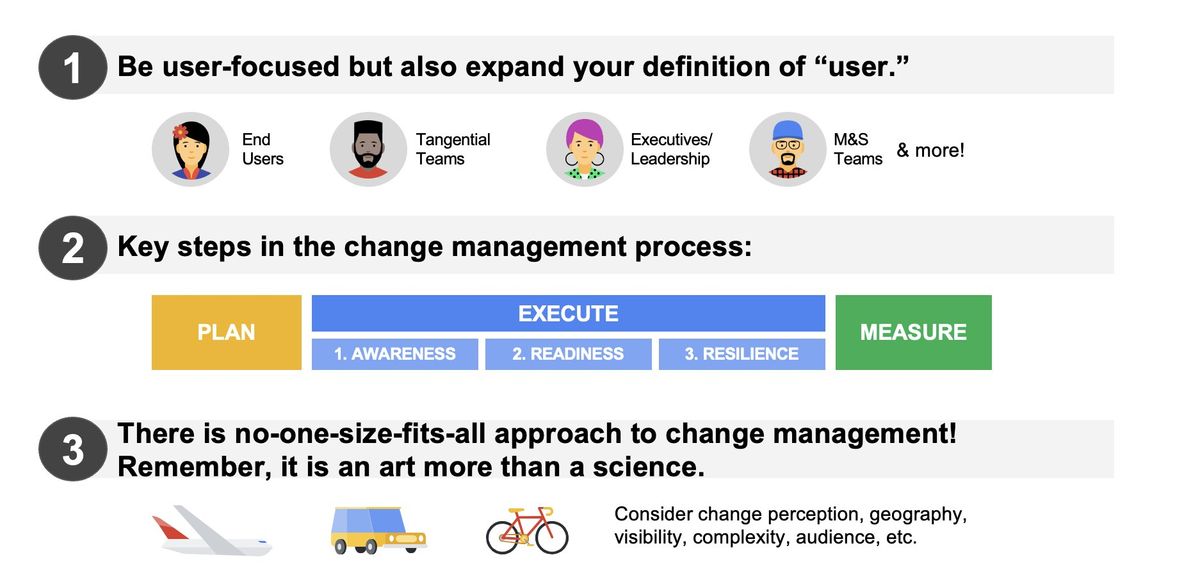Change Management Framework: The Project Manager's Role in Effective Change Management

In the ever-evolving landscape of project management, the ability to navigate and drive successful change is a skill that cannot be overlooked. This blog post explores the vital role of a project manager in the change management process. We'll delve into the core concepts of change management, discuss strategies for project managers to facilitate change, and provide valuable insights for seamless adoption.
The Essence of Change Management
Change management, in essence, is the art of delivering a project and ensuring that the organization as a whole embraces it. The success of your project hinges on the acceptance and adoption of the change, whether it involves launching a new external tool or redefining operational processes within a production facility. In both cases, it's the people who interact with the product or process that bear the most significant impact of the change.
For instance, consider a website's user interface update. The primary impact is on the users who must adapt to the new layout and navigation. If the update includes a new brand logo, the impact extends to the organization's employees, who must align their communications with the updated logo.
As a project manager, your role goes beyond delivering projects; it extends to embracing change as it comes and convincing your wider audience, whether it's end-users or internal stakeholders, to welcome change. A well-planned approach to change management not only aids in the successful implementation of the project but also addresses potential issues that might arise in later stages.
Integrating Project Management and Change Management
Change management, while sometimes led by other team members or senior leaders, is a project in itself. Project managers often have a crucial role to play in supporting and participating in the successful adoption of their projects.
Both project management and change management aim to increase the likelihood of project success and utilize tools and processes to achieve this goal. The most effective approach is to integrate project management and change management, a responsibility that falls squarely on the shoulders of project managers.
As a project manager, ask yourself the following questions to initiate the change management process:
- How will the organization respond to change?
- Who are the influencers who can affect change?
- What communication methods will work best?
- What change management practices will facilitate the successful implementation of my project?
These answers will help you prepare for various scenarios and allow you to craft solutions to support the adoption of your project effectively.
Best Practices for Change Management in Projects
- Proactive Planning: Proactive and inclusive change management planning keeps potentially impacted stakeholders informed about upcoming changes.
- Integration with Project Management: Incorporate change management into your project management steps. Create channels for team members to voice suggestions and concerns.
- Communication: Regularly communicate with impacted stakeholders, the change management team, and the project team. Emphasize how the changes will enhance the end-user experience.
- Consistency: Maintain consistency in change management by following a clear process that guides how your project will handle change.
- Empathy: Recognize that change can bring challenges and anxiety. Being empathetic can subtly support the process.
- Use of Tools: Leverage tools like surveys for stakeholder input, flowcharts for visualizing project development, and culture mapping to illustrate how change affects company culture.
As a project manager, your responsibility extends beyond project delivery. The skill set you develop in this program will undoubtedly include change management, an essential component of project success.
For more insights on participating in the change management process, explore the following resources:
- Change Management at the Project Level
- 5 Steps to Successful End-User Adoption
- Change Management Framework
- Google Change Management Framework
Conclusion:
In conclusion, change management is a vital aspect of project management, and project managers play a pivotal role in ensuring successful project adoption. Embracing change, planning proactively, integrating change management into project management, and employing empathy and effective tools are key steps to facilitate a smoother transition during complex projects. With the right approach, project managers can steer their teams and organizations toward successful change adoption, ultimately driving project and organizational success.

Comments ()